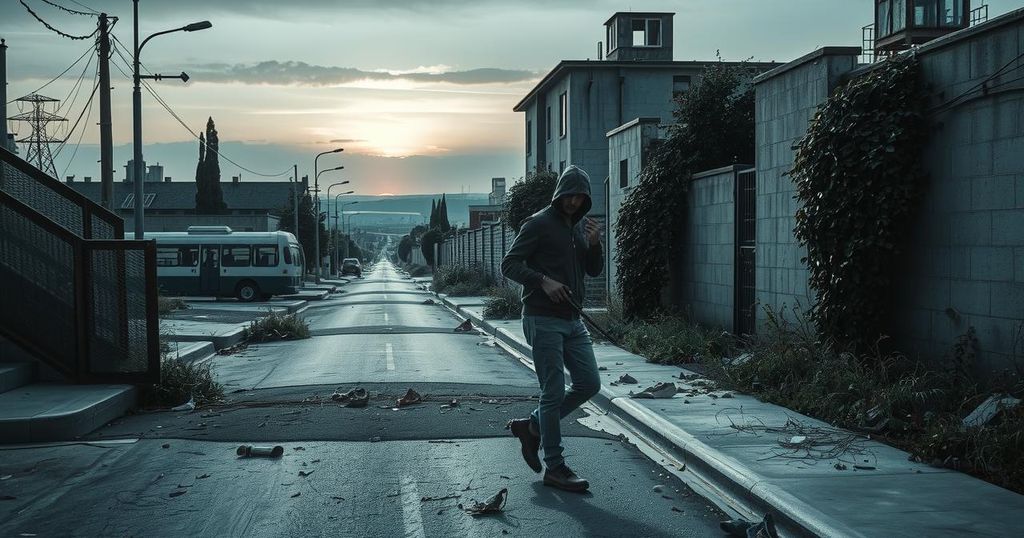World news
AFRICA, BELGIUM, CIVIL WAR, CONGO (KINSHASA), CORN, CORNEILLE NANGAA, DEMOCRACY, DEMOCRATIC REPUBLIC OF CONGO, DRC, EUROPE, FELIX TSHISEKEDI, GOMA, HUMANITARIAN, KINSHASA, KIVU, M23, MILITARY, NBC NEWS, NORTH AMERICA, RWANDA, SOUTH KIVU, TEXAS, TSHISEKEDI, U. S, UNITED NATIONS, UNITED STATES, WAR
Oliver Grayson
0 Comments
Renewed Violence in the DRC: The Rise of the M23 Insurgency and Global Implications
The DRC faces a deadly insurgency led by M23, exacerbating an ongoing conflict over decades. Over 400,000 have been displaced recently, and international responses remain muted amid rising humanitarian crises. The conflict is deeply intertwined with ethnic tensions and global mineral interests, particularly cobalt production, raising broader geopolitical concerns.
The Democratic Republic of Congo (DRC) is currently experiencing a severe insurgency, led by the M23 rebel group, which is attempting to expand its control southward from Goma. This escalation signifies the most significant intensification of a longstanding conflict in over a decade. Following the capture of Goma, M23’s leader, Corneille Nangaa, has declared intentions to push towards the capital, Kinshasa, prompting strong governmental responses, including a vow from President Félix Tshisekedi to reclaim lost territories.
For decades, conflict has plagued the DRC, worsening significantly in the past three years due to clashes between national troops and M23 insurgents, which are believed to be supported by Rwanda. The United Nations has reported mass displacements, with over 400,000 people forced from their homes last month alone, alongside fatalities of peacekeepers in ongoing firefights. The current violence and humanitarian crisis have led President Tshisekedi’s government to label the situation an act of war by Rwanda.
The violence has drawn international concern, with reactions highlighting the brutality faced by civilians and the implications for global stability. Reports indicate that Romanian mercenaries, enlisted to aid the Congolese forces, have surrendered and sought refuge with UN peacekeepers, exemplifying the deteriorating security situation. While U.S. officials have acknowledged the gravity of the conflict, the response from Western nations has been notably tepid, raising questions about foreign influence in the region.
M23 formed in 2012 amid ethnic conflicts, primarily involving the Tutsi and Hutu groups, with roots in the aftermath of the 1994 Rwandan genocide. The insurgent group’s claim of fighting for minority rights has led to accusations that Rwanda supports their actions within the DRC. Despite Rwanda’s denials of providing military aid, the ongoing conflict perpetuates tensions between these countries and exacerbates regional instability.
China’s involvement in the DRC is significant, particularly concerning mineral resources vital to global technology markets. The DRC produces a majority of the world’s cobalt, essential for batteries used in electronics. Despite International condemnation of M23’s actions, the presence of various armed groups complicates security, with potential implications for international mineral supply chains, though the immediate threat is currently assessed as low.
Rwanda’s historical involvement with M23 has evolved over the years; while it previously faced sanctions after supporting rebels, Rwanda now maintains an influential position in international affairs, garnering continued aid despite recent conflicts. The intersection of the DRC’s mineral wealth and Rwanda’s strategic partnerships establishes a complicated dynamic, raising concerns over the long-term impact of ongoing hostilities in the region.
International responses to the escalation have varied, with some nations reconsidering their engagement with Rwanda while others continue their support. The plight of the DRC and the ongoing conflict may compel a reassessment of foreign strategies, as stability in this mineral-rich nation remains critical for broader geopolitical interests.
The Democratic Republic of Congo is facing a renewed wave of conflict, primarily due to the aggressive expansion of the M23 rebel group. The ongoing tensions trace back to historical ethnic strife and previous wars that have resulted in significant civilian casualties and displacement. The international community is closely monitoring these developments, as instability in the DRC has wider ramifications due to its vast mineral resources, essential to global industries, particularly in technology and energy sectors.
The resurgence of conflict in the DRC highlights the complex interplay of domestic struggles and international interests. The ongoing offensive by M23 is not merely a local issue; it poses wider implications for geopolitics, particularly concerning resource control. As regional tensions escalate, the need for decisive international action and humanitarian support becomes increasingly urgent to prevent further deterioration.
Original Source: www.nbcnews.com




Post Comment